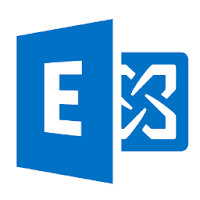Thursday, August 22, 2013
Microsoft Enables Remote Powershell for Lync Online
As announced by the Office 365 Team here, Microsoft finally enabled remote Powershell for Lync Online. Here is the link to Technet's Introduction to Lync Online Powershell Documentation which will give you information about how to connect, list available Powershell cmdlets, and other general information about the new feature. You can download the Powershell Module for Lync Online here and see the list of all Lync Online cmdlets here.
Thursday, August 1, 2013
Script to mass enable users for Exchange UM
During Lync deployments, I have often run into the need to mass enable multiple users for Unified Messaging. To do this, I altered an existing script (I cannot remember where I found it) to do this using a CSV file. Here is the script:
if ($args[0] -eq $null)
{
$userNameFile = read-host "Please enter the full path of the .csv file with user aliases."
$usernamefile = $usernamefile -replace '"',""
} else {
$usernamefile = $args[0]
}
if($userNameFile -ne "")
{
$csv=import-csv $userNameFile
} else {
"Unable to find a valid CSV with user Aliases, extensions and UM policy name. Please try again later."
exit
}
foreach($c in $csv )
{
"Enabling User " + $c.Alias + " using UM mailbox policy = " + $c.umpolicy
Enable-ummailbox -id $c.Alias -PinExpired $True -ummailboxpolicy $c.umpolicy -extensions $c.extension
}
The CSV file for this script will look like this:
The Alias column can contain any of the following values for the Identity parameter:
Let me know if you have any questions or comments about this script. Hope this helps.
if ($args[0] -eq $null)
{
$userNameFile = read-host "Please enter the full path of the .csv file with user aliases."
$usernamefile = $usernamefile -replace '"',""
} else {
$usernamefile = $args[0]
}
if($userNameFile -ne "")
{
$csv=import-csv $userNameFile
} else {
"Unable to find a valid CSV with user Aliases, extensions and UM policy name. Please try again later."
exit
}
foreach($c in $csv )
{
"Enabling User " + $c.Alias + " using UM mailbox policy = " + $c.umpolicy
Enable-ummailbox -id $c.Alias -PinExpired $True -ummailboxpolicy $c.umpolicy -extensions $c.extension
}
The CSV file for this script will look like this:
| Alias | extensions | umpolicy |
| User1 | 1234 | Policy Name |
| User2 | 1235 | Policy Name |
| User3 | 1236 | Policy Name |
The Alias column can contain any of the following values for the Identity parameter:
- ADObjectID
- GUID
- Distinguished name (DN)
- Domain\Account
- user principal name (UPN)
- LegacyExchangeDN
- SmtpAddress
- Alias
Let me know if you have any questions or comments about this script. Hope this helps.
Subscribe to:
Comments (Atom)

